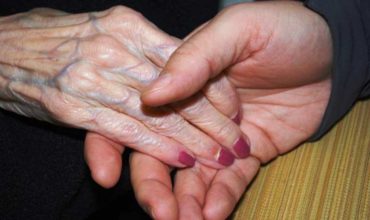FIRST IN A SERIES: EASY ANSWERS TO TOUGH QUESTIONS ABOUT ELDERCARE
Each person is unique in how they age, in their family situation, and in challenges they face as they age. However, the fundamental tough questions each senior and their family often must answer, or ignore, about potential eldercare are similar. Ignoring those questions is rarely the best option. A right answer to each of those questions is usually easy to determine. It’s the implementation that is hard.
What are some of the fundamental tough questions? My personal and professional experience include these.
- What is causing my Mom/Dad/Wife/Husband’s resistance to our getting outside help with eldercare?
- How do we convince Mom/Dad/Wife/Husband to accept and cooperate with outside help for eldercare?
- With what things should we have outside help for eldercare?
- Where can we get outside help for eldercare?
- What outside eldercare sources are best for us?
- How should we schedule outside help with eldercare?
What is my “professional and personal experience” that lends credibility to my thoughts on these tough questions about eldercare? My wife and I each have a parent who suffered from Alzheimer’s disease the last seven years of their lives. Our families were involved in the support and care required during those years. My wife and I own and operate a licensed eldercare agency. What our agency does isn’t unique, but how we do it is.
In this article, we address the first tough question.
- What is causing my Mom/Dad/Wife/Husband’s resistance to our getting outside help with eldercare?
“I don’t need anyone to help me. I’m doing just fine.”
“My daughter/son/spouse is doing everything I need. I don’t need any more help.”
“Mom has always been very independent. She doesn’t want a stranger helping her.”
Pride goes before destruction, and a haughty spirit before a fall. (Proverbs 16: 18)
“I can’t keep this up! I need to get help for Dad, and for me!”
Surely one does not turn against the needy, when in disaster they cry for help.” (Job 30: 24)
Pride is often a major reason causing a senior’s resistance to the idea of outside help with eldercare.
Pride: 1) an overhigh opinion of oneself; exaggerated self-esteem
Everyone needs help at times. It is prideful to reject reasonable help when in a situation requiring it. Physical or cognitive limitations from aging, injury, or disease do not make a person less valuable or less worthy of respect. Some limitations do require that help be offered, and accepted, to overcome the limitations. Getting that help allows a higher level of independence, by increasing what the senior can do. Refusing help makes the person more dependent, making them literally helpless, and often feeling hopeless.
When refusing help puts the senior at greater risk of injury and illness, often the senior’s pride goes before a physical “fall”, resulting in broken bones and other injuries, which accelerate the physical, mental, and emotional declines of aging.
Having “always been independent” doesn’t make anyone special. Almost all seniors who do need help have been independent their entire adult lives. All but a small percentage of adults are independent. That changes as we age. Needing outside help for eldercare is normal at some point in most people’s lives. Accepting and cooperating with outside help for eldercare only means the senior is less independent, not dependent.
Seniors often resist outside help with eldercare because they fear having a stranger in their home. The physical and cognitive limitations aging can cause also can create feelings of vulnerability and fear.
A desire to “leave as much of my money as I can to my children” sometimes causes a senior’s resistance to the cost of outside help. If a person has believed that wealth was the means to respect and love, it is natural for that belief to increase when physical and cognitive limitations cause a person to fear losing respect and love.
Usually it is the children or spouse who are also seeking help for themselves when they initiate discussions about outside help with eldercare. The children or spouse often allow the situation to get to a crisis point before acknowledging that they need help, or before taking action to get help.
In the next article I will address the second tough question about eldercare.
- How do we convince my Mom/Dad/Wife/Husband to accept and cooperate with outside help for eldercare?
Greg Dodd, CSA
Greg is a Certified Senior Advisor (CSA) and can be found in the Find CSAs section of the Society of Certified Senior Advisors® website (www.csa.us).
Greg and his wife, Katie, own a franchise of Seniors Helping Seniors® services in Dallas, Texas. Their website is http://www.seniorcaredallasnorth.com/Home.html






